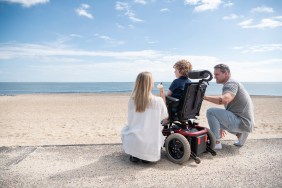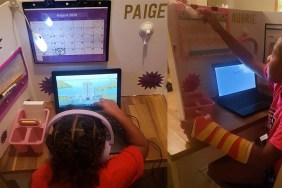I’ve adopted a lot of socially-conscious terminology in recent years to keep up with our changing culture. But, I recently overheard a conversation and read a Facebook post about ADHD kids that has me second-guessing a more clinical description. As a substitute teacher in public schools, I’ve come to realize that the term “special needs” is not only fitting, but also very accurate for the ADHD child.
I know Facebook is a total time suck. I’ve spent more hours scrolling and clicking and commenting than I care to count. But, I’ve joined some great online communities. One of those groups is for moms who are real about the ups and downs of parenthood, marriage, divorce, and womanhood. Recently, one mom was asking for advice about her child who struggles with ADHD. In her post, she referred to her child as a special needs kid.
To my surprise, that term raised the hackles of many moms within the group. Some were offended. Others thought “special needs” was derogatory. A few moms suggested that “non-nuerotypical” would be the more fitting description of a child with ADHD.
Then, there was a conversation I overheard recently that further made me question whether a politically correct term benefits these children.
Mom: Kevin is non-neurotypcial.
Mom 2: Non-neuro what-o?
Mom 1: Non-neurotypical.
Mom 2: What does that even mean?
Mom 1: It means his brain works differently than neurotypical brains.
Mom 2: Oh. So, like, a mental illness? Or, like, special needs?
In this instance, there socially-conscious term seemed to create confusion. The ADHD child literally has special needs that should be accommodated by the school to ensure the student has the best chance at a successful academic career. While “non-neurotypical” isn’t inaccurate, it doesn’t quite highlight the patience and grace that a child with ADHD is entitled to receive from their school and from society at large. It sounds clinical and not at all humanizing. The term “special needs” garners more immediate understanding and sensitivity from the laypeople the child will encounter.
Once a kid has been diagnosed with ADHD, the school recognizes and accommodates them by creating a 504 or individual education plan (IEP). Although they differ, both plans aim to create a school environment that removes as many barriers as possible to that particular child’s learning based on the unique characteristics of his/her/their diagnosis.
A child with an IEP often has a paraprofessional who accompanies them during classes to work with them one-on-one in a more controlled environment. If necessary, the para will review the coursework, administer a test, and help with homework in a separate room to remove distractions that might limit the child’s success. A child’s IEP or 504 plan may stipulate the environment they are to take tests in, how often they can have brain breaks from class to visit their caseworker, visit a sensory room, and use fidgets or other tools to mitigate the effects of their condition.
Next time you hear someone labeled as “special needs” hit the pause button on your offense reaction. Special needs isn’t a derogatory term for a child with ADHD. Instead, the label brings awareness to the fact that a child with the disorder may look like a typical child, but does indeed require and deserve additional support. No offense required.








